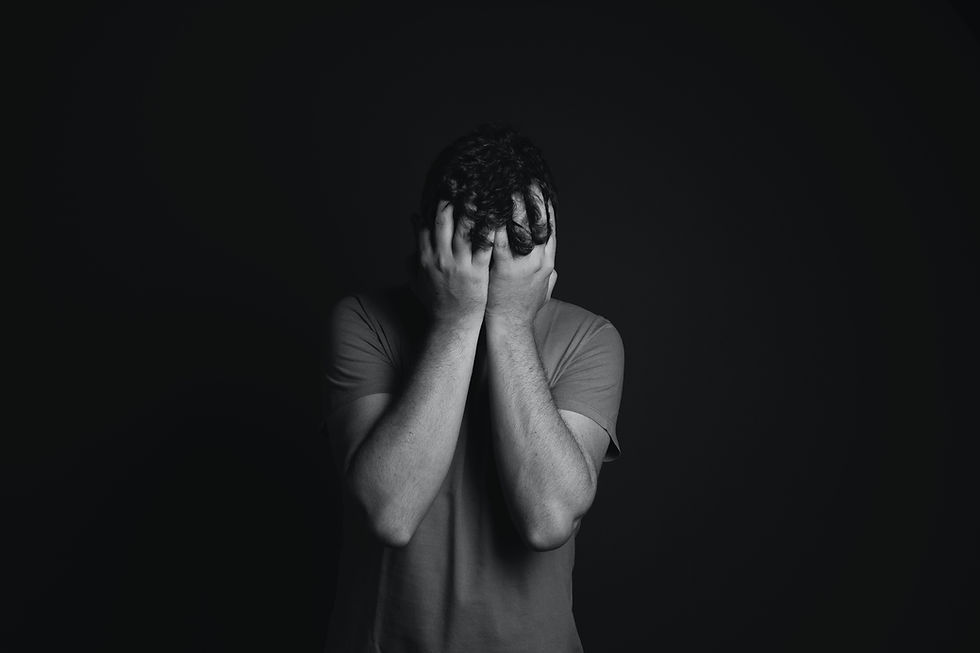How Mental Health Effects Fashion
- Ifeyinwa Nwefo
- Oct 4, 2021
- 3 min read

When it comes to mental health, fashion can be expressed in different ways for different people. For example, people with depression may have different clothes they want to wear during different times because it provides them comfort and happiness, and sometimes, they might use fashion as an imaginable shield during bad days.
In order to keep up with fashion trends, people watch fashion shows like New York Fashion Week, read magazines like British Vogue and check out celebrity style. In general, if they are a lover of fashion, it will make them stay up to date and as fashion trends continuously change, it is good to stay ahead of the trends.
However, statistics shows that people in the fashion industry are 25% more likely to experience a mental illness disorder ranging from depression, anxiety, or eating disorders, as they are more vulnerable.
Over the years, mental health has seemingly become less problem in the fashion industry, as the tragic deaths of highly revered designers Kate Spade from New York, committed suicide in her bedroom. Famous fashion designer Alexander McQueen was found dead with asphyxia in his London apartment - both of them shining a spotlight on mental awareness.
When it comes to mental health, fashion can be used to cultivate positive impact, as it gives the opportunity to be who you are and show the world through fashion sense, and talking about feelings to people around like the therapy can help stop feeling lonely/troubled.
The unattainable look portrayed in fashion makes some people feel bad about themselves, and from posting a picture of themselves online and getting a bad feedback. For example, when someone post online, ''I am beautiful'' the statement normally comes with negative feedback.
When posting pictures on social media, selfies is the main focus. A study carried out by Jennifer Millis, gave group of female undergraduates an iPad to take selfie of themselves and upload it either on Facebook or Instagram.
One group took one picture and uploaded it without editing, but the others too many pictures and did some retouch of the selfie using an app. Mills and her colleagues found that all the selfie takers felt less attractive and less confident after posting than when they’d walked into the experiment, even those who’d been allowed to edit their photos to their heart’s content.
“Even though they can make the end result look ‘better’, they still are focused on aspects of what they don't like about the way they look,” says Mills.
There are some fashion brands that helped champion mental health in 2021. Popular backpack and bag company, Jan Sport started #LightenTheLoad, a campaign to help connect young people with mental health resources — especially under the heightened stress of the COVID-19 pandemic.
Ban.do is a lifestyle brand that sells clothing, accessories and wellness items with message that promotes positivity. The necklaces feature “Depression,” “Anxiety,” and “Bipolar” word charms in rhodium- or gold-dipped brass — a way to open a conversation about one’s experience.
Lululemon is a brand that's become synonymous with leggings, offers a variety of activewear and accessories for men and women. Lululemon create peace on purpose which includes workshops hosted by mindfulness leaders designed to help cope with anxiety and grief amidst crises.
Free People is a women's clothing brand focused on bohemian style. Free People is a member of the URBN portfolio of brands, which has a dedicated 'Making an Impact' branch for social good initiatives.
Athleta is a popular activewear and fashion company within the Gap family of brands. Athleta created the Wellness Collective, a comprehensive destination for digital content, information on events, and perspectives from women for women on how to lead a balanced life that includes attention to mental health and self-care.



Comments